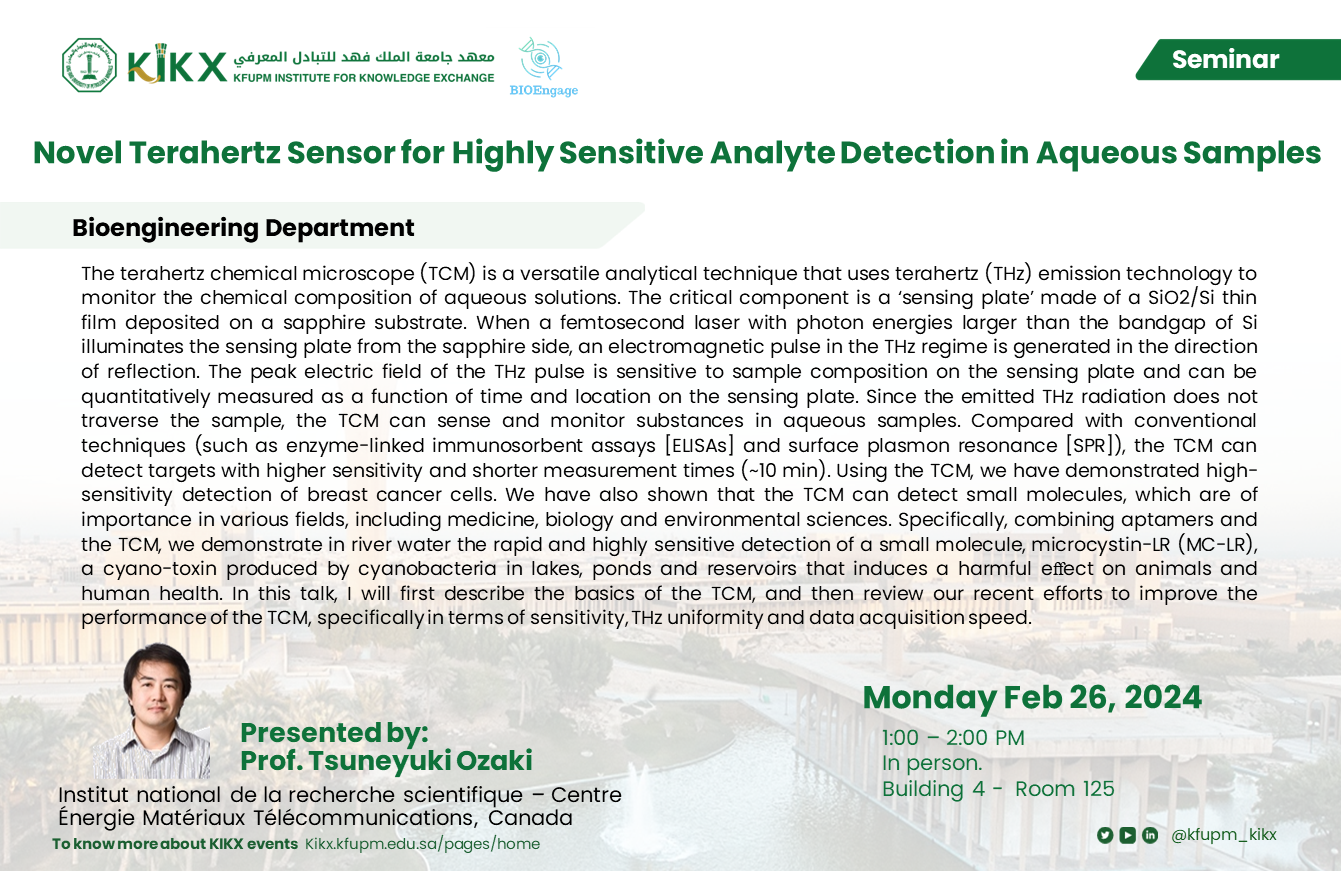Novel Terahertz Sensor for Highly Sensitive Analyte Detection in Aqueous Samples
Organized by: BIOE Department
The terahertz chemical microscope (TCM) is a versatile analytical technique that uses terahertz (THz) emission technology to monitor the chemical composition of aqueous solutions. The critical component is a ‘sensing plate’ made of a SiO2/Si thin film deposited on a sapphire substrate. When a femtosecond laser with photon energies larger than the bandgap of Si illuminates the sensing plate from the sapphire side, an electromagnetic pulse in the THz regime is generated in the direction of reflection. The peak electric field of the THz pulse is sensitive to sample composition on the sensing plate and can be quantitatively measured as a function of time and location on the sensing plate. Since the emitted THz radiation does not traverse the sample, the TCM can sense and monitor substances in aqueous samples. Compared with conventional techniques (such as enzyme-linked immunosorbent assays [ELISAs] and surface plasmon resonance [SPR]), the TCM can detect targets with higher sensitivity and shorter measurement times (~10 min). Using the TCM, we have demonstrated high-sensitivity detection of breast cancer cells. We have also shown that the TCM can detect small molecules, which are of importance in various fields, including medicine, biology and environmental sciences. Specifically, combining aptamers and the TCM, we demonstrate in river water the rapid and highly sensitive detection of a small molecule, microcystin-LR (MC-LR), a cyano-toxin produced by cyanobacteria in lakes, ponds and reservoirs that induces a harmful effect on animals and human health. In this talk, I will first describe the basics of the TCM, and then review our recent efforts to improve the performance of the TCM, specifically in terms of sensitivity, THz uniformity and data acquisition speed.
